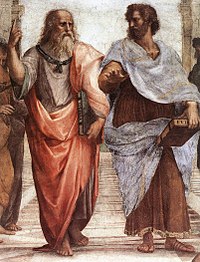August, Saturday 17th., 2019
"...The purpose of science, technology and business must be to assist this progress, enabling the Earth to support an ever-growing humanity. Human life is the supreme value in LaRouche's world view; environmentalism and population control are seen as retrogressive steps, promoting a return to the Dark Ages..."

Lyndon LaRouche (1922~2019)
"...The purpose of science, technology and business must be to assist this progress, enabling the Earth to support an ever-growing humanity. Human life is the supreme value in LaRouche's world view; environmentalism and population control are seen as retrogressive steps, promoting a return to the Dark Ages..."

The Venetian Black Nobility and Baroque - ROBERT SEPEHR
LaRouche and his followers use Neoplatonism as the basis for an economic model that posits "the absolute necessity of progress". Economies evolve in stages as humanity devises new technologies, stages that LaRouche compares to the hierarchical spheres in Kepler's model of the solar system based on the Platonic solids. The purpose of science, technology and business must be to assist this progress, enabling the Earth to support an ever-growing humanity. Human life is the supreme value in LaRouche's world view; environmentalism and population control are seen as retrogressive steps, promoting a return to the Dark Ages. Rather than curtailing progress, because of dwindling resources, LaRouche advocates using nuclear technology to make more energy available to humanity, freeing humanity to enjoy music and art.[33]
Kepler's Platonic solid model of the solar system from Mysterium Cosmographicum (1596)
